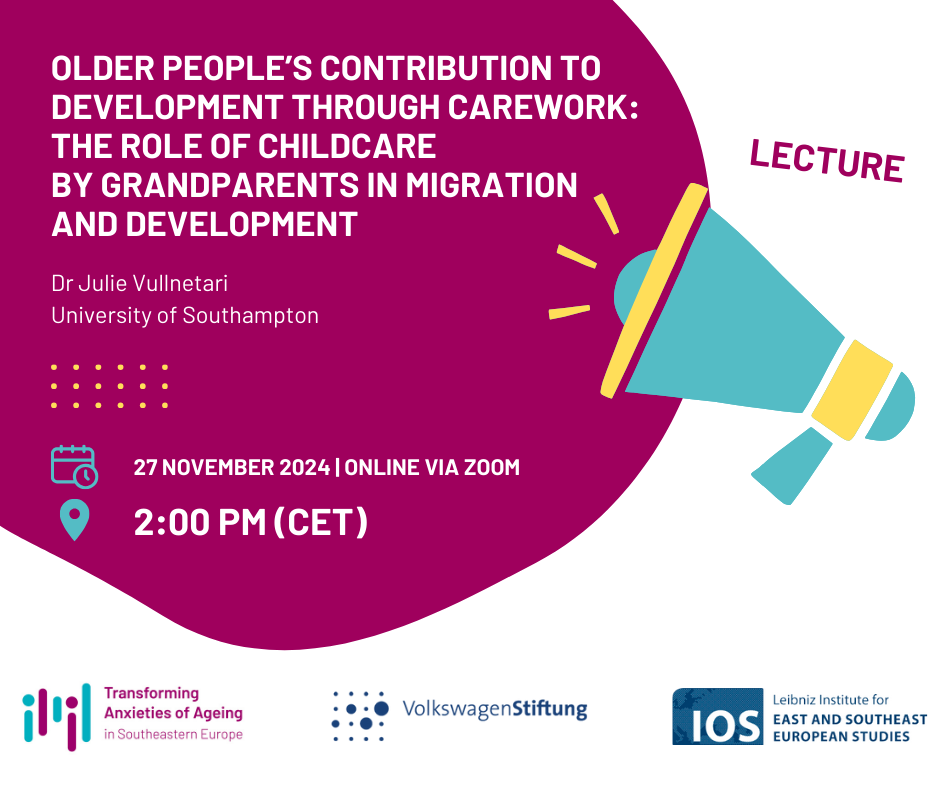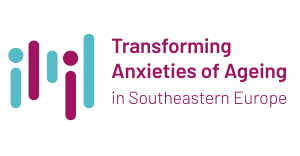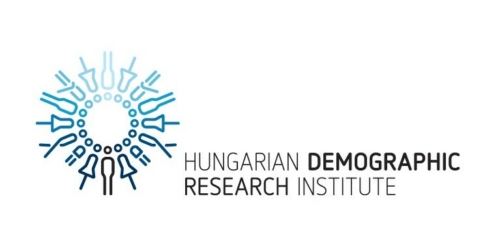Older People’s Contribution to Development Through Carework: The Role of Childcare by Grandparents in Migration and Development

Older People’s Contribution to Development Through Carework: The Role of Childcare by Grandparents in Migration and Development
Online Lecture
In her lecture, Julie Vullnetari applies a generational lens to understanding the role of older people in development, focusing primarily on older parents who stay in areas of origin while their adult children emigrate. An emerging body of literature from around the world demonstrates that older parents frequently provide childcare for their migrant family members, mainly in the country of origin, and sometimes through migrating themselves. This lecture goes further. It makes the conceptual argument that this carework should be regarded as development work. Drawing on research into Albanian families, located in Albania and Greece, Julie Vullnetari asks how does carework by older people contribute to development and what are the relations of power around this? The analysis shows that grandparents provide significant support particularly for childcare but also for social reproduction and critically for building and maintaining productive assets and safety nets for migrants in their home country. In short, grandparent carers are the lynchpins in complex intergenerational strategies of migration and livelihood development. The analysis contributes to the literature on migration and development by bringing older people from the margins to the centre of these debates. Older people’s childcare, together with other productive and reproductive activities that they undertake for migrant children in countries of origin, is central to invisibilized ‘economies of care’ that underpin migration’s contribution to development. Moreover, this carework by older people contributes to development in home and host countries, thus bridging the Global South–Global North divide. Finally, older people’s carework is gendered, with older women doing the vast majority. Taken together, these insights disrupt two dominant (economistic and Eurocentric) narratives that: (a) development in migration contexts only happens in the Global South and (b) the most significant drivers of this development are migrants’ social and financial remittances from the Global North.
Julie Vullnetari is Associate Professor of Human Geography at the University of Southampton (UK), where she has been researching and teaching on migration and development for the last 10 years. The intersection of ageing and migration is one of her key areas of interest, and she has researched this from the perspective of older people in migrants’ areas of origin. Empirically, her research has been grounded in studying Albanian migration, both internal and international, although she has supervised PhD students researching other geographical contexts such as India, Pakistan, the Philippines, the UK, and more recently the Caribbean. Alongside migration, Julie Vullnetari has also worked on exploring everyday life in socialist societies (also in Albania), within which she has developed scholarship around feminist geopolitics of borders. She is also passionate about equality and inclusion and has recently supervised participatory action research on understanding student experiences from ethnic minority backgrounds in her Faculty, with the aim of making university spaces anti-racist and inclusive.
Zoom link:





